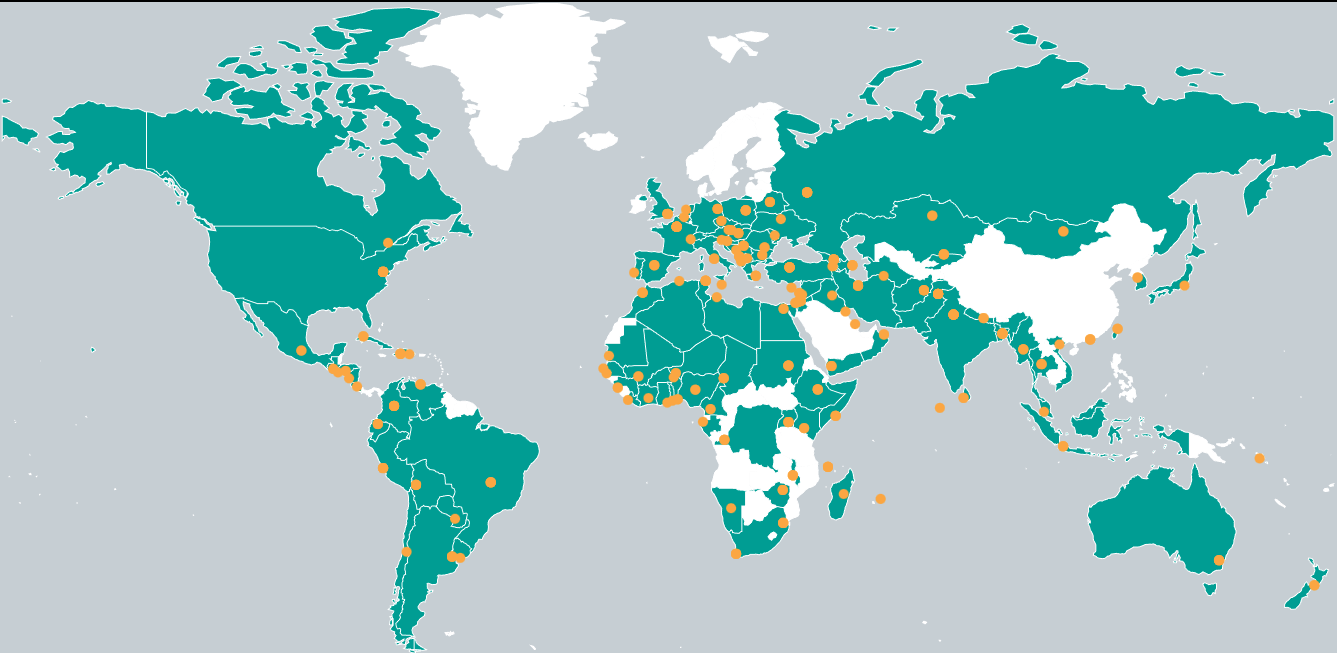The Democracy, Conflict, and Governance Program is a leading source of independent policy research, writing, and outreach on global democracy, conflict, and governance. It analyzes and seeks to improve international efforts to reduce democratic backsliding, mitigate conflict and violence, overcome political polarization, promote gender equality, and advance pro-democratic uses of new technologies.
Program experts
Saskia Brechenmacher
Senior Fellow, Democracy, Conflict, and Governance Program
Thomas Carothers
Harvey V. Fineberg Chair for Democracy Studies; Director, Democracy, Conflict and Governance Program
Mariano-Florentino (Tino) Cuéllar
President, Carnegie Endowment for International Peace
Steven Feldstein
Senior Fellow, Democracy, Conflict, and Governance Program
Francis Fukuyama
Nonresident Scholar, Democracy, Conflict, and Governance Program
Rachel Kleinfeld
Senior Fellow, Democracy, Conflict, and Governance Program
Beatriz Magaloni
Nonresident Scholar, Democracy, Conflict, and Governance Program
Jennifer McCoy
Nonresident Scholar, Democracy, Conflict, and Governance Program
Mara Revkin
Nonresident Scholar, Democracy, Conflict, and Governance Program
Oliver Stuenkel
Visiting Scholar, Democracy, Conflict, and Governance Program
Milan Vaishnav
Director and Senior Fellow, South Asia Program
Sarah Yerkes
Senior Fellow, Middle East Program
Richard Youngs
Senior Fellow, Democracy, Conflict, and Governance Program
In recent years, multiple international indices have downgraded U.S. democracy. Polarization, accusations of voting irregularities, political violence, and other negative trends are having a corrosive influence on the state of U.S. democracy and leaders’ ability to govern, address domestic problems, and craft stable policies. This project brings together the work of scholars across the Carnegie Endowment for International Peace who analyze the problems afflicting U.S. democracy based on comparative perspectives and offer insights that can strengthen U.S. governing institutions and society.
In recent years, multiple international indices have downgraded U.S. democracy. Polarization, accusations of voting irregularities, political violence, and other negative trends are having a corrosive influence on the state of U.S. democracy and leaders’ ability to govern, address domestic problems, and craft stable policies. This project brings together the work of scholars across the Carnegie Endowment for International Peace who analyze the problems afflicting U.S. democracy based on comparative perspectives and offer insights that can strengthen U.S. governing institutions and society.
Digital Feature
Explore the Global Protest Tracker
A one-stop source for following crucial trends in the most significant antigovernment protests worldwide since 2017.

All work from Democracy, Conflict, and Governance
filters
The disparate cases and hard questions of interpretation underline the need for nuance.
More than 160 significant anti-government protests erupted around the world this year, according to Carnegie’s Global Protest Tracker, with many driven by voting-related grievances.
China has plans to compete with Starlink with its Qianfan project.
Bureaucratic reform is important, but DOGE's agenda is the wrong answer.
In the United States, France, and Germany, political violence has been rising. The problem is not just emotive political polarization. Extreme political parties, irresponsible leaders and democratic disillusionment also play key roles, and are eating away at the heart of our political systems.
To address the deepening climate crisis, climate activism is employing a wider variety of tactics and aiming at a broader set of goals. In response, the movement faces stronger repression and civic backlash against climate action.
- Erin Jones,
- Richard Youngs
The tussle between democracy and authoritarianism has drastically altered Europe’s geopolitical landscape
The EU’s fragmented approaches to the crises of climate change, conflict, and democracy fall short by not addressing the mutually reinforcing links between them. Brussels needs an integrated strategy to tackle the emerging three-way nexus and mitigate the vulnerabilities it creates.

- +1
- Richard Youngs,
- Ricardo Farinha,
- Jasper Linke,
- Jeremy Wetterwald
Restrictive gender norms and authoritarianism often strengthen one another.
Riyadh’s fence-sitting strategy reflects its desire to keep all doors open. Others may follow its lead.
- Erin Jones,
- Richard Youngs

- +1
- Richard Youngs,
- Ricardo Farinha,
- Jasper Linke,
- Jeremy Wetterwald

.jpg)







.jpg)
